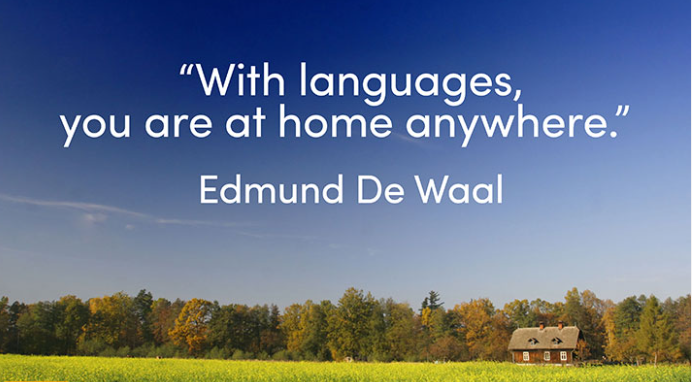Modern Foreign Languages

We care for all God’s children, unconditionally. As a rural town community, the Parable of Jesus as the Good Shepherd (John 10:11) resonates with our children who feel valued and welcomed as individuals. All members of our school family, the community and the wider world are valued and respected.
Intent
Acquiring proficiency in a foreign language offers a rich educational, social, and cultural journey. Students cultivate communication and literacy abilities that establish the groundwork for future language acquisition. They foster linguistic prowess, expand their comprehension of language mechanisms, and investigate distinctions and parallels between French and English. Gaining competence in an additional language heightens recognition of the diverse and multicultural global landscape, infusing an international aspect into students' learning, which in turn grants them insights into both their own heritage and other cultures. Learning a foreign language serves as a conduit for inter-disciplinary connections and serves to reinforce the knowledge, skills, and comprehension cultivated in other subjects.
At St. Nicks' we aim for all pupils to:
- Understand and respond to written and spoken language from a variety of authentic sources
- Speak with increasing confidence, fluency and spontaneity, finding ways of communicating what they want to say, including through discussion and asking questions, and continually improving the accuracy of their pronunciation and intonation
- Write at varying length, for different purposes and audiences, using the variety of grammatical structures that they have learnt
- Provide tools for pupils to research unfamiliar language independently, building a reference library for ongoing language learning.
- Cultivate genuine interest and positive curiosity about foreign languages, making language learning enjoyable and stimulating.
- Explore language's relationship with identity and culture, fostering a deeper understanding of the world and cultural diversity.
- Nurture the intention of becoming lifelong language learners among all pupils.
Implementation
We achieve this through:
- Starting in the Early Years and KS1, where children are introduced to the language through simple greetings during registration and basic classroom instructions.
- A curriculum which progressively builds pupils’ language skills through weekly lessons
- Focusing on grammar, vocabulary, phonics and cultural knowledge.
- Exploring speaking, listening, reading and writing skills.
- Actively engaging children through the use of games, role play and action songs
- A scaffolded approach to lessons to ensure all learners achieve
- Ensuring all staff have strong subject knowledge and can access support where necessary
- Holding French language events across the year to promote and explore language in a range of contexts
Intended Impact
The impact of our curriculum is that pupils have an increased enjoyment and understanding of different cultures and languages, as well as gaining skills and proficiencies which are transferrable to the next stage of their education. Pupils progress substantially in learning one language in primary education, laying the foundations for further foreign language studies at key stage 3.

